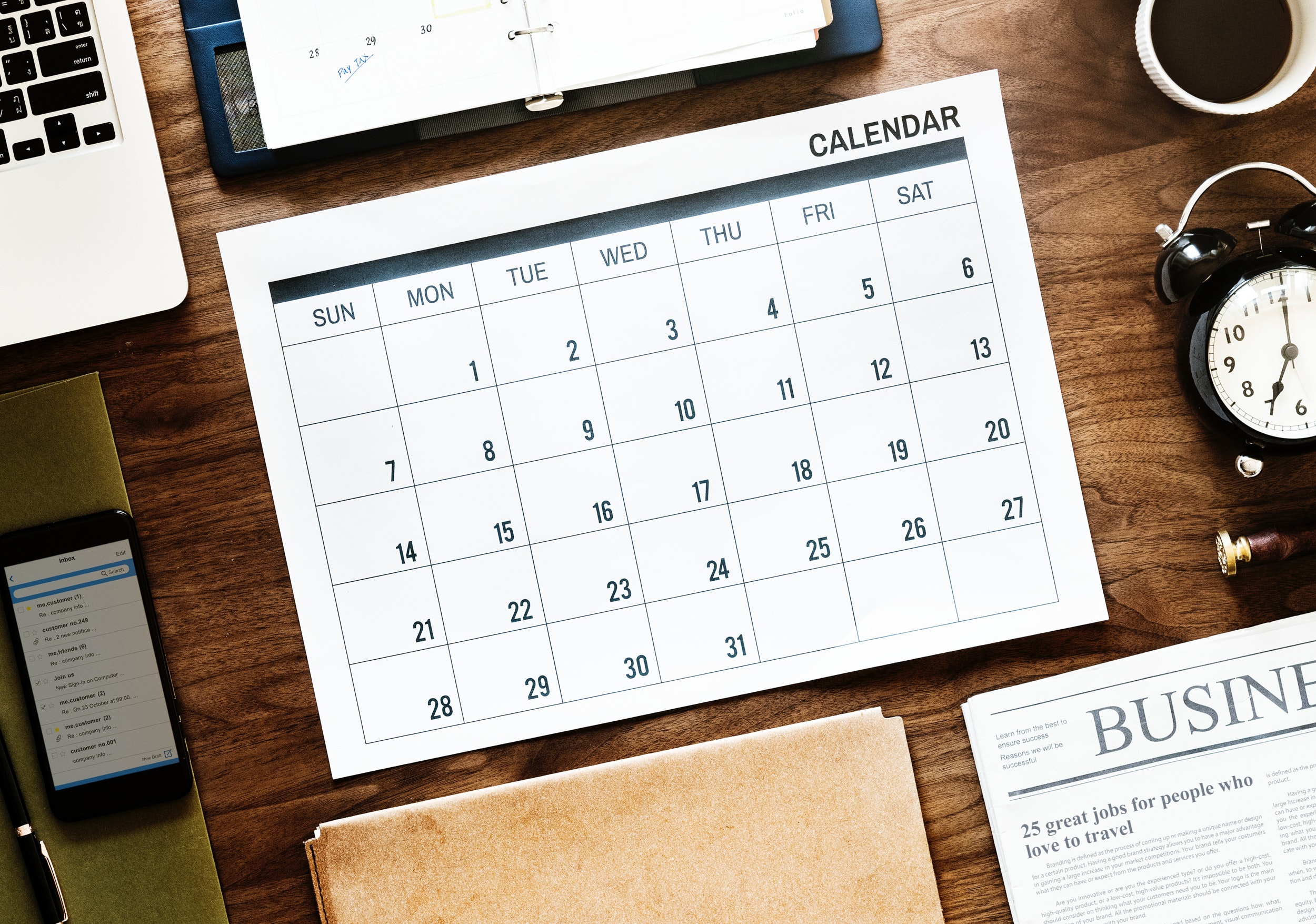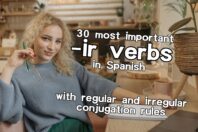Explained: How To Use The Spanish Verb Soler To Talk About Routine

Get our free email course, Shortcut to Conversational.
Have conversations faster, understand people when they speak fast, and other tested tips to learn faster.
More infoIn Spanish grammar, there are some simple tricks or “hacks” that you can use as a beginner to speak Spanish in a certain tense, without actually learning that tense.
For example, the Voy A Hack allows you to speak in the future, without learning the future tense.
Memorizing expressions or scenarios where the subjunctive is commonly used is an easy way to use the Spanish subjunctive, without fully understanding the actual grammar behind it.
In this post, we are going to explore how the verb Soler is used in order to speak about actions that are done in the present, or were done in the past, on a frequent basis.
What Does The Verb “Soler” Mean?
You can think of the verb soler as a way to describe actions you “usually do”, or past actions you “used to do”.
For example, below is soler conjugated in the simple present tense.
- I’m used to brushing my teeth 3 times a day – Yo suelo cepillar mis dientes 3 veces al día
And now, in the imperfect past tense.
- I used to wear diapers when I was a baby – Yo solía usar pañales cuando era un bebé.
The verb doesn’t have to refer to personal actions – it can also refer to things or situations that happen with frequency.
- December is usually very cold – En diciembre suele hacer mucho frío
- At lunch they usually offer desserts – En el almuerzo (Ellos) suelen ofrecer postres
Before we continue, let us point out two little tricks.
- Soler can only be conjugated in simple present, past Imperfect or present subjunctive.
- Soler in the present or imperfect past tense is always followed by another verb in the infinitive.
Since the present subjunctive is not commonly used, this post will focus on teaching you exactly how soler is used in 1) the simple present tense and 2) the imperfect past tense.
How To Use Soler In The Simple Present Tense
Using soler in the simple present tense is an easy way to indicate that an action or situation that happens on a frequent basis.
This could apply to a daily ritual such as brushing your teeth, taking a Spanish class one day a week, or even something that happens once a year, such as going to the beach on vacation.
In other words, it normally describes actions that you are used to doing, or usually do.
Let’s see a couple of examples.
- My dog is used to eating 2 times a day – Mi perro suele comer 2 veces al día
- We are used to eating chinese food every sunday – Nosotros solemos comer comida china cada domingo
- I’m used to going to the beach when I have vacations at work – Yo suelo irme a la playa cuando tengo vacaciones en mi trabajo
How To Conjugate Soler In The Simple Present Tense
| Personal pronoun | Simple present | English equivalent |
| Yo | Suelo | I am used to |
| Tú | Sueles | You are used to |
| Él / Ella | Suele | He/she is used to |
| Usted | Suele | You are used to |
| Nosotros, nosotras | Solemos | We are used to |
| Ellos, Ellas | Suelen | They are used to |
| Ustedes | Suelen | You are used to |
Once you learn the simple present tense conjugation, all you need to do is add an action verb in the infinitive.
Formula: Soler (simple present tense) + infinitive action verb + complement
Let’s see some examples which refer to situations or things that happen often or with a certain frequency.
- The bus usually arrives at the stop every 20 minutes – El bus suele llegar a la parada cada 20 minutos
- In winter, stores usually make discounts on summer clothes – En invierno las tiendas suelen hacer rebajas en la ropa de verano
How To Use Soler In The Imperfect Past Tense
You can also use the verb soler in the imperfect past tense, to talk about things, habits or activities that you no longer do.
| Personal pronoun | Past Imperfect | English equivalent |
| Yo | Solía | I used to |
| Tú | Solías | You used to |
| Él / Ella | Solía | He/She used to |
| Usted | Solía | You used to |
| Nosotros, nosotras | Solíamos | We used to |
| Ellos, Ellas | Solían | They used to |
| Ustedes | Solían | You used to |
Once again, to speak about things you “used to do”, simply conjugate soler in the past imperfect and add the action verb in the infinitive.
Formula: Soler (imperfect past tense) + infinitive action verb + complement
Remember, using soler in the imperfect past tense indicates an action or situation that used to occur in the past on a frequent basis, but no longer does.
- I used to go out to the clubs every weekend – Yo solía salir a las discotecas todos los fines de semana
- He used to swim at 6 in the morning, but now he swims at night – Él solía nadar a las 6 de la mañana, pero ahora (Él) nada en las noches
- When I was little, I wasn’t used to wear many costumes in carnivals – Cuando era pequeña, no solía usar muchos disfraces en carnavales
- There used to be a very big tree here – Aquí solía haber un árbol muy grande
One Last Thing: Using Soler To Ask Question
Using soler is an easy way to ask questions about past or present habits, or situations that may have occurred (still occur in the present) on a frequent basis.
Simply conjugate soler in the present or imperfect past tense and add the infinitive verb.
- Formula: ¿Soler (in simple present or past imperfect) + infinitive verb + complement?
For example:
- Do you usually drink coffee before breakfast? – ¿Sueles tomar café antes de desayunar?
- What do you usually do after training? – ¿Que suelen hacer después del entrenamiento?
- Does she usually do this kind of parties? – ¿Ella suele hacer este tipo de fiestas?
How To Use Soler: Practice
1. Yo ______ trabajar en esta oficina.
(I used to work in this office)
2. Yo _____ a ir a casa de mi abuela cada semana.
(I am use to going to my grandmother’s house every week)
3. Yo _____ correr por el parque, pero ahora no tengo tiempo.
(I used to run around the park, but now I do not have time)
4. ¿Tu _____ ver TV antes de dormir?
(Do you usually watch TV before you go to sleep?)
5. ¿Qué _____ hacer para relajarte?
( What do you usually do to relax?)
6. Nosotros ______ comprar la comida en ese restaurante, pero lo cerraron.
(We used to buy food in that restaurant, but they closed it.)
7. Ellos ______ ir en bicicleta a su trabajo.
( They are used to going to their work riding a bicycle)
8. ¿_____ discutir todo el tiempo?
(Do they usually argue all the time?)
9. Ella _____ asustarse por las noches, pero ya no.
(She used to get scared at night, but not anymore)
10. Yo _____ tomar una ducha cada noche antes de dormir.
( I am used to taking a shower every night before going to sleep)
ANSWERS
1. Yo solía trabajar en esta oficina.
2. Yo suelo ir a casa de mi abuela cada semana.
3. Solía correr por el parque, pero ahora no tengo tiempo.
4. ¿Sueles ver TV antes de dormir?
5. ¿Qué sueles hacer para relajarte?
6. Solíamos comprar la comida en ese restaurante, pero lo cerraron.
7. Ellos suelen ir en bicicleta a su trabajo.
8. ¿Suelen discutir todo el tiempo?
9. Ella solía asustarse por las noches, pero ya no.
10. Yo suelo tomar una ducha cada noche antes de dormir.



